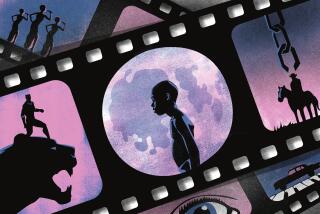‘The Birth of a Nation’ Documents History
- Share via
So, political correctness rears its ugly head yet again. Gibson doesn’t think “The Birth of a Nation” merits a place on the National Film Registry as a film of cultural, historical or aesthetic significance. In “The Films of D. W. Griffith” (1975), Edward Wagenknecht wrote that “The Birth of a Nation” “brought the motion picture out of the nickelodeons, which it had hitherto largely though not exclusively inhabited, into the ‘legitimate’ theater, where it was presented at the ‘legitimate’ level of prices and seen by a great many people who had hitherto known very little about films. . . . As it compelled distinguished men and women to take a stand for or against it, it became impossible to deny its power or that of the medium it represented.”
The vehemence of Gibson’s statements attests to the continuing power of “The Birth of a Nation” to provoke strong emotions, which is surely a major qualification of a great work of art.
If “The Birth of a Nation” isn’t a film of cultural, historical or aesthetic significance, then there is no such thing. I hope the Library of Congress will not be swayed by the narrow-minded arguments against it and will honor “The Birth of a Nation” with its rightful place in American film history.
RICHARD CIBENER
Los Angeles
More to Read
Only good movies
Get the Indie Focus newsletter, Mark Olsen's weekly guide to the world of cinema.
You may occasionally receive promotional content from the Los Angeles Times.










